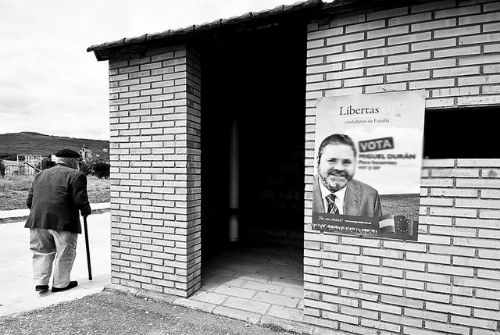Spam Elections
by Digital Rights LAC on August 28, 2014
The Internet can and must play a more significant part in the electoral period. In order for this to happen, the democratic potential and communicative effect of digital platforms, as a result of their own characteristics, must be recognized by both the State and its citizens.
By Eduardo Magrani*
Recently, Jeferson Monteiro, who created the ‘Dilma Bolada’ profile on different social networks, temporarily took down its Twitter and Facebook pages in fear of being made liable for influencing voters during the current election period. At the same time, the different parties began to implement such tools as spam text messages and automatic posts on social networks, paving the way for a strategic, digital guerilla dispute.
Both of these movements demonstrate, on the one hand, how digital environments have been flooded with pre-programmed robotic expressions, aimed at convincing the voters; and, on the other hand, how their true potential to be an arena for public debate is not being realized. Peoples’ fear of being liable for any comment and the lack of a solid culture of freedom of expression, have a cooling effect on the debate, which hinders the maturing of online discussion and deters the free manifestation of opinions in digital environments.
The Internet can and should play a more significant part during the electoral period. But this depends on the recognition of the democratic potential and the communicative effect of digital platforms, as a result of their own features, for the State as well as for its citizens.
The lack of comprehension of this potential becomes evident when searching for any existing regulation of such spaces. For example, electoral legislation, when dealing with the right of reply on the Internet, limits the response to an offensive comment to the same size and the same time. This makes sense if we think in terms of TV and Radio, but it makes very little sense when we think of social networks. One of the main characteristics of the Internet is precisely the flow of information it allows for, with fewer limitations and a lot more freedom do argue and counter-argue. The right of reply is already embedded in the very logic of social networks and the Internet, without restrictions of size or time.
If this arena continues to be incorrectly regulated during electoral periods, reducing its communication potential, dominated by pre-programmed spam and by citizens’ – and candidates’ – auto-censure; it’s society who will lose by unnecessarily limiting its own right to access information and freely express its opinions.
:::
* Professor and researcher at the Center for Technology and Society at FGV Law School in Rio de Janeiro (CTS/FGV).






